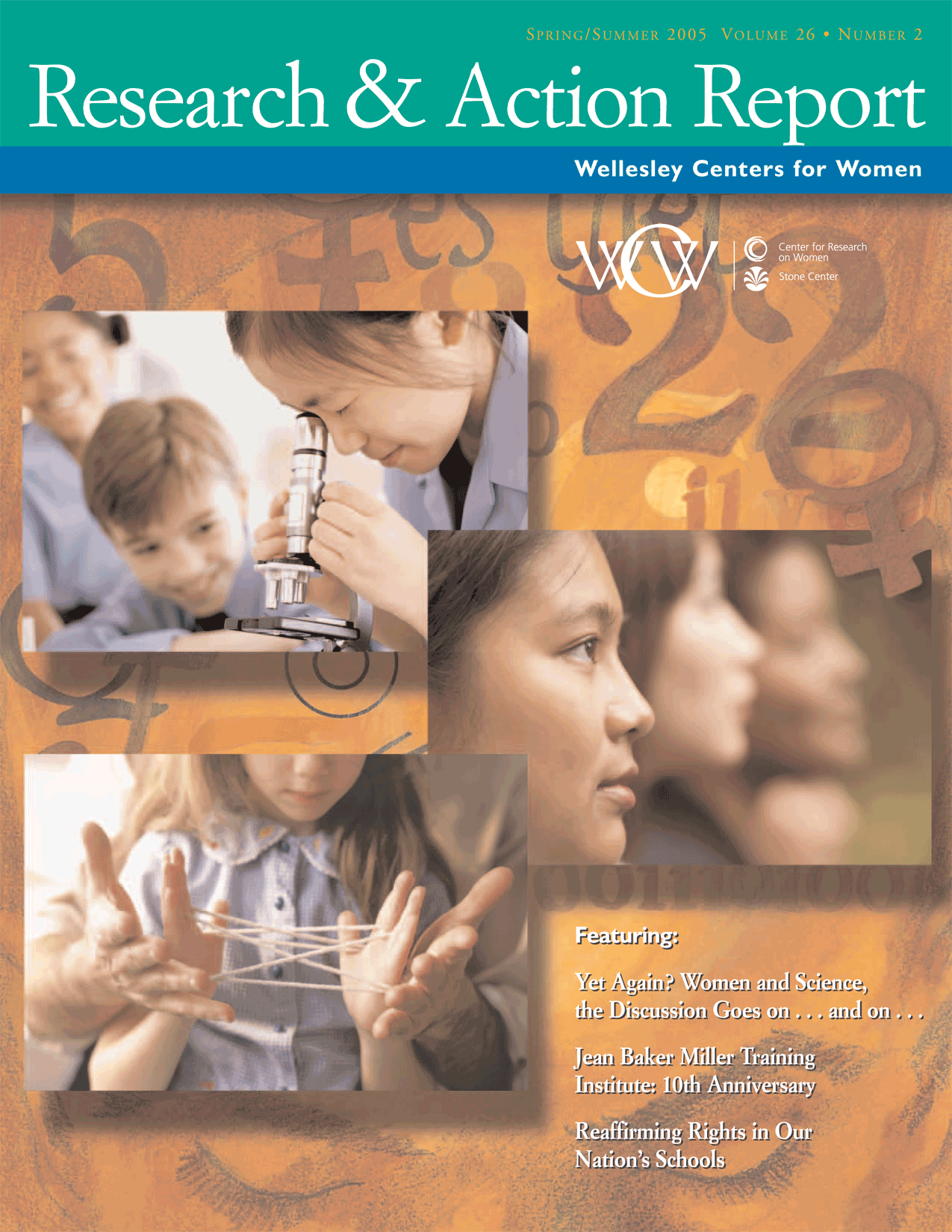Harvard President Lawrence Summers drew a storm of criticism this past winter when he spoke about the dearth of top-level women scientists and engineers and suggested that innate sex differences influence achievement in these fields. His somewhat belated explanation that he had intended to provoke discussion, not advance a hypothesis, did little to quell the furor. Summers' remarks and the debate and discussion they ignited are but the tip of the iceberg. Despite years of genuine progress for women in scientific and technological fields, misconceptions about women's abilities and subtle barriers to their progress remain. The interactions and interconnections among biological similarities and differences, environmental factors and cultural assumptions, are complex and difficult to unravel. But regarding questions of when, why, and how women do or do not advance in science, the old "biology is destiny" thesis is clearly not supported by the evidence.
The Jean Baker Miller Training Institute (JBMTI) at the Wellesley Centers for Women (WCW) is celebrating its tenth anniversary this year. The Institute is dedicated to the exploration of new models of human strength based on empathy, compassion, and contribution to social justice. Working at both the micro and macro levels, the Institute supports individual change while working for social transformation. The 2005 anniversary year brings deep gratitude for all who have joined in the work, a sense of pride in the accomplishments, and a daunting awareness of what still needs to be done.
Welcome to the post-Columbine world of zero-tolerance school discipline. Zero tolerance means one strike and you’re out, no matter what. Schools are quick to suspend students for anything that could be deemed a weapon, a drug, or a threat, and the result is that students are being controlled in ways that shred their Constitutional rights. Students have been suspended for papers they have written, thoughts they have had, and drawings they have created (Commonwealth v. Milo, M., 433 Mass. 149 [2001]). Elementary-school children have been suspended for comments made in the heat of a touch football game or in response to a teacher denying permission to go to the bathroom, comments that schools characterized as "death threats." In a case from Jonesboro, Arkansas, an eight year-old boy was suspended for pointing a chicken nugget toward a teacher and saying "Pow, pow."
The Wellesley Centers for Women (WCW) has three postdoctoral research positions sponsored by the National Institute of Child Health and Human Development (NICHD). In the summer of 2004 researchers were selected and matched with a mentor. During their two-year tenure at WCW, the fellows receive training in a variety of skills ranging from methodology to preparing a manuscript for publication and writing grant proposals. The program is designed to prepare the junior researchers to become senior scholars in the study of childhood and adolescence, with special emphasis on how race and ethnicity, gender, and social class interact with risk and resilience factors in human development. Fellows can collaborate with their mentors on externally funded research projects and can initiate independent research conducted under the guidance of their mentor. Sumru Erkut is working with Michelle Bragg, Linda Williams is teamed with Diane Purvin, and Nancy Marshall is partnered with Jasmine Waddell.

In this issue:
 | Wellesley Centers for Women 781.283.2500 |
Copyright © 2025 Wellesley Centers for Women, Wellesley College | Privacy Policy
National SEED Project | National Institute on Out-of-School Time
